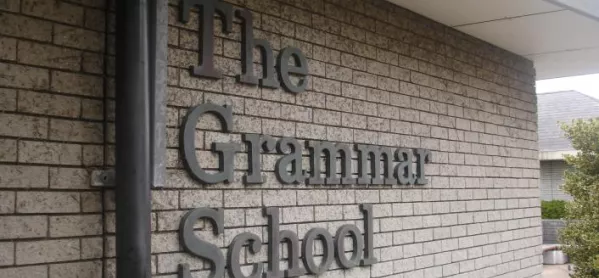Damian Hinds has said he trusts grammar schools to keep their promises on taking in more disadvantaged pupils.
MPs on the Commons Education Select Committee today questioned the education secretary over the £50 million Selective Schools Expansion Fund.
Grammars bidding for money from this fund to expand will need to show that they have “ambitious and realistic” plans to increase access for pupil-premium pupils.
But MPs asked what sanctions would be in place if the numbers of low-income pupils did not increase following expansion.
Mr Hinds’ answer was that any future bids for capital could be affected.
“Generally speaking, I take at their word headteachers, school governors and so on and regard them as honest people who when they say they will do something, plan to do it,” Mr Hinds said.
“But, ultimately, with all of these things, what happens in the future in terms of capital allocations will tend to take into account what happened in the past.”
Robert Halfon, committee chair, said: “But if you give them the money and they expand and there aren’t significantly more pupils from disadvantaged backgrounds, there are no substantive sanctions you could propose?”
‘How do we hold grammar schools to account?’
Mr Hinds repeated only that any future decisions on capital would take their record into account.
“But that is locking the stable door after the horse has bolted,” Ian Mearns, Labour MP for Gateshead, replied.
“Those schools will have already expanded and had capital. There has to be some sort of recourse if they don’t expand the number of youngsters on free school meals beyond 3 per cent.”
Mr Halfon also asked about the Memorandum of Understanding between the Department for Education and the Grammar School Heads’ Association - a separate initiative from the expansion fund - which sets out what action will be taken in existing schools to widen access for disadvantaged pupils, including designing suitable admissions arrangements and undertaking outreach work with primaries.
Mr Halfon asked: “You have a memorandum of understanding about how to get more disadvantaged pupils into the school, and I’m asking you...what’s the teeth? What happens if nothing happens?”
Mr Hinds said the memorandum of understanding was a “statement of intent”.
Tes research has shown that more than a third of existing grammar schools have changed their admission policies to prioritise poor pupils in 2018-19, but this week an analysis by Comprehensive Future revealed that over half of grammar schools consulting over plans to expand have failed to include measures to improve access for disadvantaged pupils.




